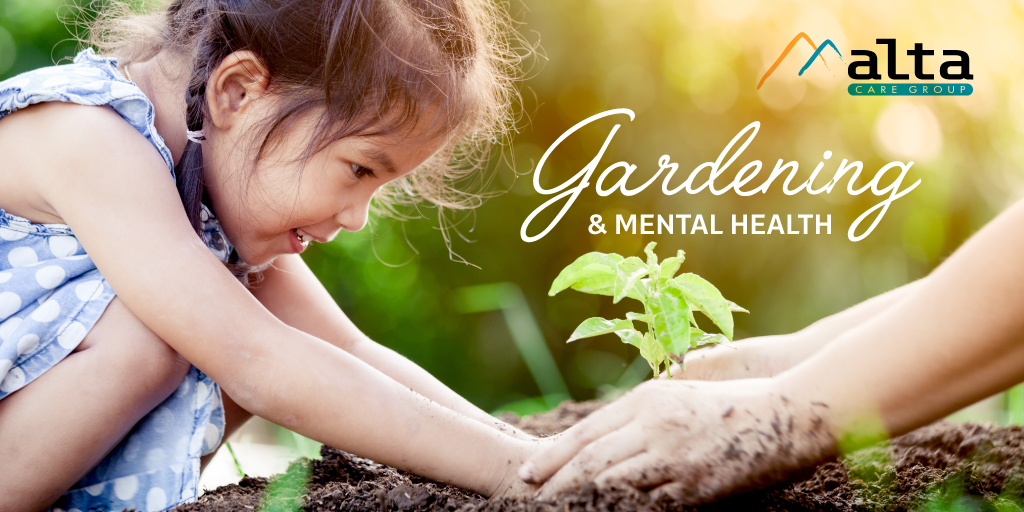Benefits of Gardening on Mental Health in Children and Adolescents
One day, I was out getting groceries with my children. As we were in the grocery store checkout line, we noticed a torrential downpour had started outside.
After checking out, umbrella-less and raincoat-less, we sprinted outside to pack the groceries into the car, getting drenched in the process. In the middle of packing the car, my 8-year-old son turned excitedly to me and exclaimed, “I am so happy because our plants are going to grow with all this rain!” Beaming from ear to ear with an overflowing sense of responsibility, my son looked so proud of his garden.
At Alta Behavioral Healthcare, we understand how important it is to surround our adolescents with opportunities for both responsibility and accomplishment. We view a garden as a perfect chance to educate and teach life skills to our youths.
Here are some of the things our adolescents have said about our garden:
- “It gives me time away with my friends.”
- “I’ve made friends here.”
- “I get to relax and have fun.”
- “I learned to know what it is like to have fun without a phone.”
- “I can talk through my problems with others and we figure things out.”
- “I’ve learned how to garden!”
- “I can cook and can. I made eggplant parmesan today.”
We use our Therapeutic Garden Program to instill positive mental health techniques in our adolescents.
Working the garden four days a week, our teens are able to make new friends and learn more about each other. Each student is able to practice social skills in an environment that accepts mistakes and redirects them towards positive, rightful actions. Our staff provides guidance, not necessarily the correct answer, when facilitating disputes between students. We do our best to foster healthy relationships and positive communication.
We also use our Therapeutic Garden Program to instill hard work and determination in our students. Each day we work on the garden, each student is given a tangible, achievable task to complete. With the practice of positive reinforcement, each student can go home with a sense of accomplishment and responsibility.
In our program, each student vows to follow the “Full Value Contract”. By committing to this contract, each student is promising to protect themselves, other and their environment.
In a time where schools no longer teach things like industrial arts or home economics, gardening helps teach many of those long forgotten skills. Using this garden as a “Technology Free Zone”, our teens can detach from their phones and tablets and escape all of the noise and chaos of the social world. While originally this was scary for some, they have found it rather enjoyable. Instead of doing things like texting or tweeting, they are able to work with their hands, share stories, and enjoy each other’s company.
Our teens also like to brag that they can now survive a zombie apocalypse with the new gardening skills that they have learned.
Therapeutic Gardening is not something we invented. The use of gardening to positively affect the mental health of our youth has been well studied and widely used for over a century.
Studies show that Therapeutic Gardening benefits adolescents through connecting them with nature, social interaction, learning new skills, and giving them a sense of independence and control. Additional studies indicate that viewing natural scenes such as gardens evoke positive feelings, improved self-esteem, increased attention and interest in activities, development of accessible environmental coping skills, blocking and reducing stress and stressful thoughts, and the reducing of negative emotions.
Our Therapeutic Garden Program continues to be a fantastic vehicle to teach our students the life skills and positive mental health techniques that they need.
Sarah E. Macovitz MSSA, LSW


